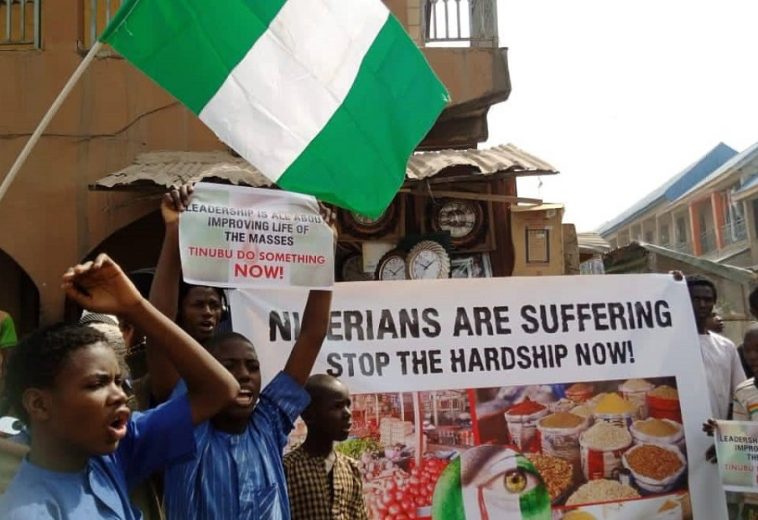In response to ongoing nationwide protests over the escalating cost of living, Nigeria’s President Bola Tinubu in his recent address, acknowledged the pervasive economic hardships faced by Nigerians. Tinubu assured citizens of his administration’s commitment to good governance and the equitable distribution of resources.
Expressing concern over the violence and destruction of properties, he recognized the frustrations of young Nigerians, who aspire to a more prosperous nation and conveyed his sorrow over the loss of lives and damage to public and private assets. Tinubu emphasized the need for public order and warned against any attempts to destabilize the country, urging protesters to suspend demonstrations and engage in dialogue.
The roots of these protests lie in Nigeria’s deep-seated economic challenges. The country’s economy, heavily reliant on oil exports, has been hit hard by fluctuating oil prices and reduced production. The World Bank reports that Nigeria’s GDP growth slowed to 2.5% in 2023, down from 3.6% in 2022, reflecting a broader trend of stagnation.
Inflation has further exacerbated the cost of living, eroding household purchasing power and pushing many Nigerians into poverty. The National Bureau of Statistics (NBS) reported an increase in all inflation indicators for June 2024, though the growth rate moderated slightly. Headline inflation rose to 34.2% in June 2024, compared to 22.8% in June 2023 and 34.0% in May 2024.
A significant aspect of the current economic crisis is the removal of subsidies. Nigeria has historically subsidized petrol and electricity, but these subsidies have become unsustainable due to rising fiscal deficits. Tinubu’s administration, since coming into power in May 2023, has partially lifted these subsidies and devalued the naira, leading to increased prices for essential goods and services. While these reforms aim to correct years of economic mismanagement, they have sparked widespread discontent.
As reported by the National Bureau of Statistics, Nigeria’s unemployment rate remains alarmingly high, with youth unemployment even more pronounced. In the NBS’ latest Nigeria Labour Force Survey Q2 2023, the unemployment rate for the third quarter of 2023 stood at 5.0%, representing a significant rise from the 4.2% reported in the second quarter.
The protests have been organised primarily on the streets, with citizens demanding a reduction in petrol prices and electricity tariffs and broader governance reforms. Tinubu defended his administration’s economic reforms since assuming office in May 2023, including the removal of fuel subsidies and the unification of foreign exchange rates, as essential measures to correct years of economic mismanagement.
READ ALSO: Will the August Protest Solve Nigeria’s Economic Conundrums?
He highlighted the government’s efforts to boost revenues, reduce debt servicing, and promote growth in the non-oil sector. Additionally, he outlined initiatives aimed at improving infrastructure, creating jobs, and supporting small businesses, emphasizing the importance of building a self-reliant economy.
Despite a heavy-handed response from security forces and the president’s appeal for calm, demonstrations have continued, albeit with reduced intensity. In Lagos, protesters peacefully voiced their dissatisfaction, while in Abuja, the primary protest venue saw little activity.
The situation remains tense, with curfews imposed in certain northern regions and Plateau state following instances of violence. As the nation watches closely, the question persists: can dialogue truly address the profound economic issues at the heart of these protests?.




